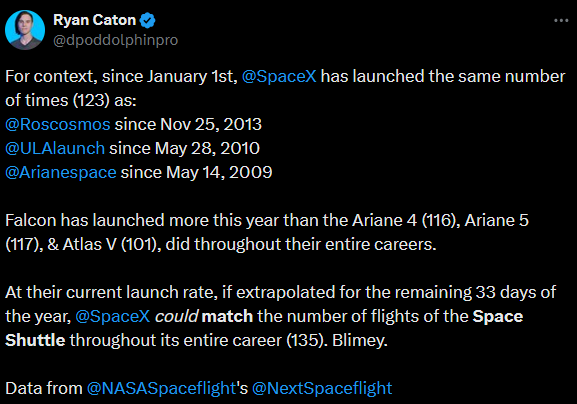- cross-posted to:
- spaceflight@sh.itjust.works
- cross-posted to:
- spaceflight@sh.itjust.works
Yeah, but like, the shuttle was cool man.
In retrospect, it wasn’t the best idea, but it’s probably the most complicated flying brick anyone has ever conceived and it somehow worked, most of the time.
But imagine you could go back and redesign it. Payload bay doesn’t have to fit keyhole satellites. Don’t have to use SRBs as a jobs program for ICBM contractors. They use a fuel that isn’t as nasty to handle as hydrogen. It gets stacked vertically. Oh wait – I just designed Starship, minus the reusable booster.
The asymmetric design terrifies me. Fuel tank on the side? Absolutely bonkers. And yet it totally worked.
Fuel tank on the side? Absolutely bonkers.
And not just on the side, but the heatshield side. In retrospect, it’s possible that designing it so the heat shield faced outward (further from any falling insulation) might have been safer.
And yet it totally worked.
Well, it mostly worked. 133/135 ain’t bad, but statistics hit different for crewed vehicles.
My understanding is that the payload bay had to be accessible while stacking, so tank on the other side wouldn’t work.
@troyunrau @llamacoffee It was cool, but that was it’s downfall. Apollo took every bit of technical resource, which might have otherwise gone into a more natural growth of activity in space. (Which is what we’re seeing now).
So when someone showed a cool space plane, regardless of the costs, practicality and viability, that pattern of political expediency was already set.
15 million per rocket launch is actually really not bad at all. If it can fit 40 satellites, then that’s $375,000 per satellite. And if it can fit 60 satellites, then that’s $250,000 per satellite.






